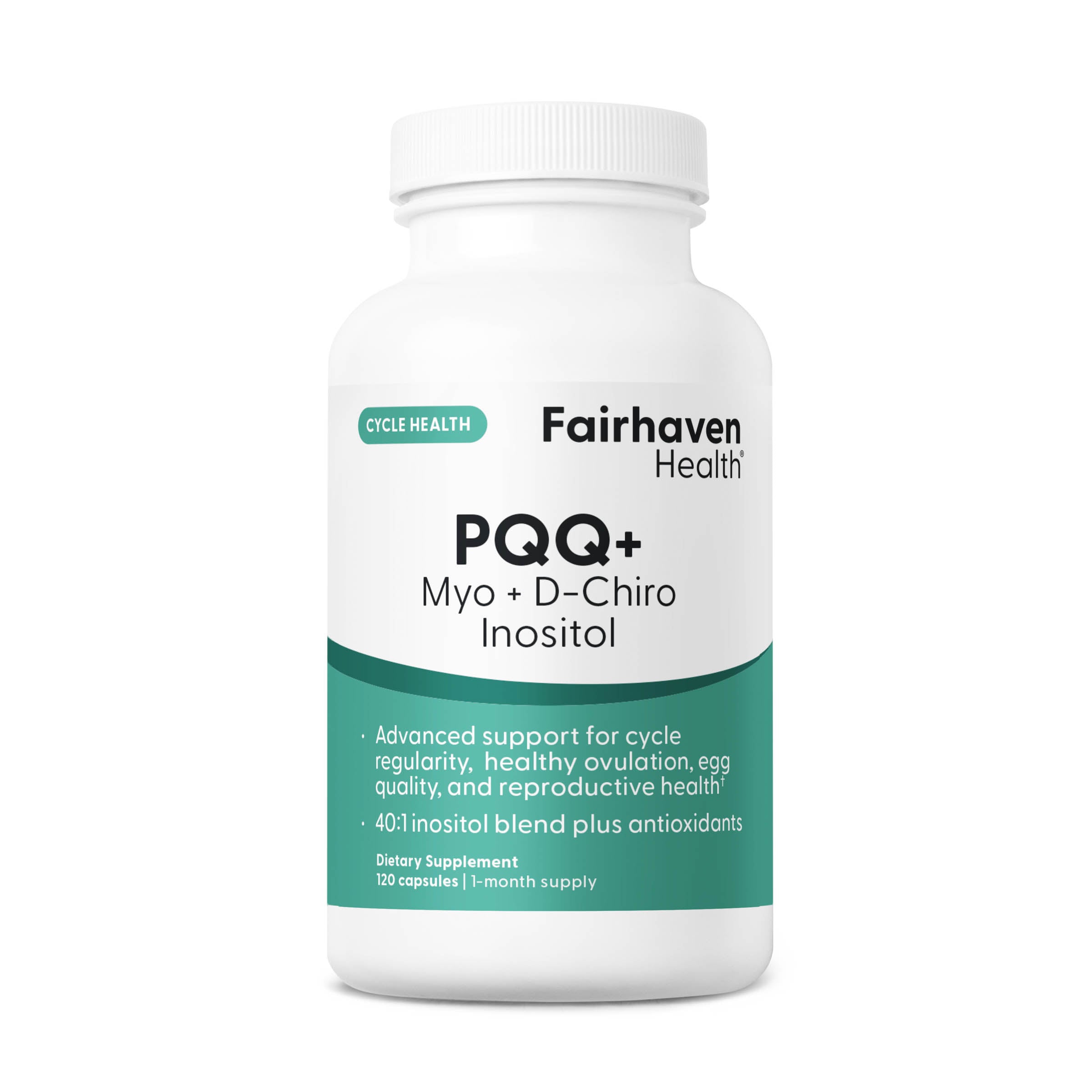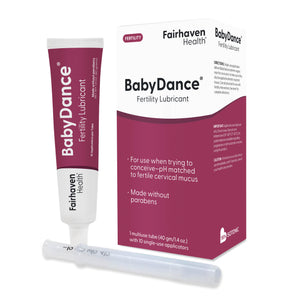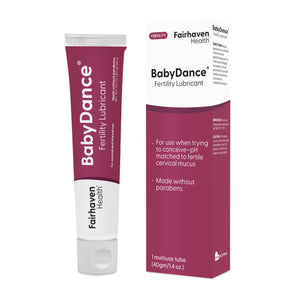By Chris D. Meletis, N.D.
Anti-Mullerian hormone—AMH for short—is produced by cells in the ovarian follicles. Ovarian follicles are fluid-filled sacs. Each sac houses an egg. AMH is linked to a woman’s ovarian reserve—in other words how many eggs she has left in the follicles. Low AMH hormone levels mean low ovarian reserve. This may be why unexplained recurrent pregnancy loss is associated with low AMH levels. AMH is only linked to the number of eggs, not the quality of those eggs. However, the more eggs you have in reserve, the better the chance that some of them will be of high enough quality to produce a healthy fetus and allow the pregnancy to continue to full term.
Bottomline, you want your AMH levels to be normal in order to get pregnant. If AMH levels are too low, it might mean you won’t have enough eggs for a successful in-vitro fertilization (IVF) procedure. But it’s not that simple. Too much AMH—often seen in women with polycystic ovary syndrome (PCOS)—can also spell trouble. Women with PCOS have higher levels of ovarian follicles, hence the high anti-Mullerian hormone levels. Women with PCOS also have higher insulin levels and insulin is thought to boost the production of AMH.2 The key is to achieve balanced AMH levels.
What Causes Low AMH Levels?
There are several reasons why your AMH hormone may be low. A common reason is age. AMH levels start to drop naturally after the age of 35. Being under constant stress can also lower a woman’s AMH.3,4 A history of surgery due to endometriosis or to remove an ovarian cyst can also cause a drop in AMH.5 Low levels of vitamin D may also be linked to low AMH.6 Exposure to environmental toxins is another factor that can lower AMH levels.7
Common Reasons for Low AMH Levels
- Age
- Constant stress
- History of surgery for endometriosis or removal of an ovary
- Low vitamin D
- Environmental toxin exposure
AMH Test Results: What It All Means
If your AMH test comes back higher than 3.0 ng/mL, it likely means you have PCOS. Lots of growing ovarian follicles are producing too much AMH. In this case, if you were to undergo IVF, ovulation induction, or intrauterine insemination, you’re at greater risk of ovarian hyperstimulation syndrome (OHSS). In this condition, the ovaries swell up and become painful. In severe cases, sudden weight gain, abdominal pain, vomiting, and having trouble breathing can occur. In rare cases, OHSS can be fatal.8
An AMH test result of 0.7 to 3 ng/mL is normal. If you have had infertility problems, than the reason is likely something other than impaired ovarian reserve.
AMH levels between 0 and 0.6 ng/mL indicate low ovarian reserve. Your doctor might suggest IVF or FSH stimulation and recommend taking steps to increase AMH levels.
|
AMH Level |
Meaning of Result |
|
Higher than 3.0 ng/mL |
High (Often points to PCOS) |
|
0.7 to 3.0 ng/mL |
Normal |
|
0 to 0.6 ng/mL |
Low |
Natural Ways to Normalize Your AMH Levels
Whether your goal is to lower or raise AMH, scientific studies have found that you can support normal AMH levels by supplementing your diet with specific nutrients, like those found in FH PRO for Women. Following are some ways you can support normal AMH levels.
Lowering AMH
In a study of 60 women with PCOS, scientists found that a combination of omega-3 fatty acids (500 mg), folic acid (800 mcg), selenium (70 mcg), vitamin E (30 mg), green tea extract catechin (4 mg), glycyrrhizin from licorice (12 mg), and coenzyme Q10 (30 mg) for at least three months significantly lowered AMH levels compared to the use of 400 mcg folic acid alone.9 This nutrient combination had other benefits, too, such as lowering testosterone levels.
In another study of women with PCOS who had irregular menstrual cycles, D-chiro-inositol lowered AMH levels and normalized the menstrual cycle.10 Likewise, a combination of myo-inositol and folic acid was found to lower AMH levels in PCOS patients.2 This combination worked better than combined oral contraceptives.
Another group of researchers observed similar results when they investigated the use of melatonin in 40 normal-weight women with PCOS.11 After six months of using this hormone, the women experienced lower AMH and testosterone levels and higher follicle-stimulating hormone (FSH) levels. Most of the women also experienced more regular menstrual cycles after melatonin treatment.
Raising AMH
Melatonin is also useful in women without PCOS who have low AMH. Melatonin is the most powerful antioxidant in follicular fluid. In 61 women undergoing IVF or intracytoplasmic sperm injection (ICSI), the women with higher melatonin levels in follicular fluid were more likely to have normal levels of AMH.12 Higher melatonin levels were also linked to successful IVF outcomes, and more oocytes (eggs) were gathered from women with higher melatonin levels. Also, women with higher melatonin levels had a greater number of eggs fertilized and higher quality embryos.
Vitamin D is another nutrient that can support healthy AMH levels. In a study of 30 infertile women who had low levels of vitamin D and AMH, vitamin D given at 50,000 IU weekly for up to three months caused an increase in AMH levels.6 After vitamin D treatment, women who had mean AMH levels of >0.7 ng/mL, the mean level of vitamin D was greater compared with women with a mean AMH level of <0.7 ng/ml. According to the study authors, “This means that higher levels of vitamin D [25(OH) D] are accompanied with higher levels of AMH.”
What do I need to know about egg freezing and AMH levels?
If you know you want to have kids some day, but aren’t ready to dive right in just yet, be sure to get your AMH levels tested. If you have low normal or below normal levels, consider egg freezing sooner rather than later. Remember that AMH and ovarian reserve naturally decline with age, so if you plan to postpone parenthood for a date in the future, you will want to be sure you have some healthy eggs frozen that can be used in IVF, in case you have trouble conceiving naturally. Even if your AMH levels are currently normal, but you aren’t sure when you will be ready to get pregnant, it won’t hurt to freeze some eggs now, while the quantity and quality of your eggs is still good. To optimize egg health prior to undergoing egg retrieval procedures for freezing, be sure to take an antioxidant-based supplement for egg quality, such as FH PO for Women, which contains comprehensive antioxidant support, as well as d-chiro inositol, Vitamin D, and melatonin – the three nutrients mentioned above that have been shown to help normalize AMH.
Conclusion
AMH hormone is linked to how many eggs a woman has in her ovarian reserve. Normal levels can play an important role in fertility. To naturally balance your AMH levels, try supplementing with dietary supplements that have been shown to either raise or lower this important hormone.
Dr. Chris Meletis
 Dr. Chris Meletis is an educator, international author and lecturer. His personal mission is “Changing World’s Health One Person at a Time.” Dr Meletis has authored 18 books and over 200 national scientific articles in journals including Natural Health, Alternative and Complementary Therapies, Townsend Letter for Doctors and Patients, Life Extension, Natural Pharmacy, and PubMed.gov articles.
Dr. Chris Meletis is an educator, international author and lecturer. His personal mission is “Changing World’s Health One Person at a Time.” Dr Meletis has authored 18 books and over 200 national scientific articles in journals including Natural Health, Alternative and Complementary Therapies, Townsend Letter for Doctors and Patients, Life Extension, Natural Pharmacy, and PubMed.gov articles.
Dr. Meletis served as Dean of Naturopathic Medicine and Chief Medical Officer for 7 years for the National College of Naturopathic Medicine (now the National University of Natural Medicine). He was awarded the 2003 Physician of the Year by the American Association of Naturopathic Physician of the Year by the American Association of Naturopathic Physicians. He has a deep passion for helping the underprivileged and spearheaded the creation of 16 free natural medicine healthcare clinics in the Portland metropolitan area of Oregon.
References:
- Sencan H, Keskin N, Khatib G. The role of neopterin and anti-Mullerian hormone in unexplained recurrent pregnancy loss - a case-control study. J Obstet Gynaecol. 2019 May 7:1-4. [Epub ahead of print.]
- Ozay AC, Emekci Ozay O, Okyay RE, et al. Different Effects of Myoinositol plus Folic Acid versus Combined Oral Treatment on Androgen Levels in PCOS Women. Int J Endocrinol. 2016;2016:3206872.
- Zhou FJ, Cai YN, Dong YZ. Stress increases the risk of pregnancy failure in couples undergoing IVF. Stress. 2019 Jul;22(4):414-20.
- Hardy TM, Garnier-Villarreal M, Ohlendorf JM, McCarthy DO. Chronic Stress and Ovarian Function in Female Childhood Cancer Survivors. Oncol Nurs Forum. 2019 May 1;46(3):E75-E85.
- Chun S, Cho HJ, Ji YI. Comparison of early postoperative decline of serum antiMüllerian hormone levels after unilateral laparoscopic ovarian cystectomy between patients categorized according to histologic diagnosis. Taiwan J Obstet Gynecol. 2016 Oct;55(5):641-45.
- Naderi Z, Kashanian M, Chenari L, Sheikhansari N. Evaluating the effects of administration of 25-hydroxyvitamin D supplement on serum anti-mullerian hormone (AMH) levels in infertile women. Gynecol Endocrinol. 2018 May;34(5):409-12.
- Pan W, Ye X, Yin S, et al. Selected persistent organic pollutants associated with the risk of primary ovarian insufficiency in women. Environ Int. 2019 May 17;129:51-8. [Epub ahead of print.]
- Mayo Clinic. https://www.mayoclinic.org/diseases-conditions/ovarian-hyperstimulation-syndrome-ohss/symptoms-causes/syc-20354697 Accessed May 28, 2019.
- Hager M, Nouri K, Imhof M, et al. The impact of a standardized micronutrient supplementation on PCOS-typical parameters: a randomized controlled trial. Arch Gynecol Obstet. 2019 May 17. [Epub ahead of print.]
- La Marca A, Grisendi V, Dondi G, et al. The menstrual cycle regularization following D-chiro-inositol treatment in PCOS women: a retrospective study. Gynecol Endocrinol. 2015 Jan;31(1):52-6.
- Tagliaferri V, Romualdi D, Scarinci E, et al. Melatonin Treatment May Be Able to Restore Menstrual Cyclicity in Women With PCOS: A Pilot Study. Reprod Sci. 2018 Feb;25(2):269-75.
- Tong J, Sheng S, Sun Y, et al. Melatonin levels in follicular fluid as markers for IVF outcomes and predicting ovarian reserve. Reproduction. 2017 Apr;153(4):443-51.







